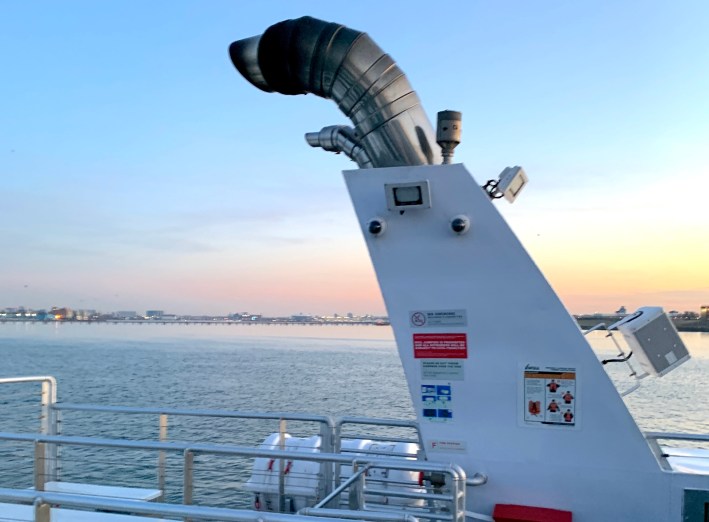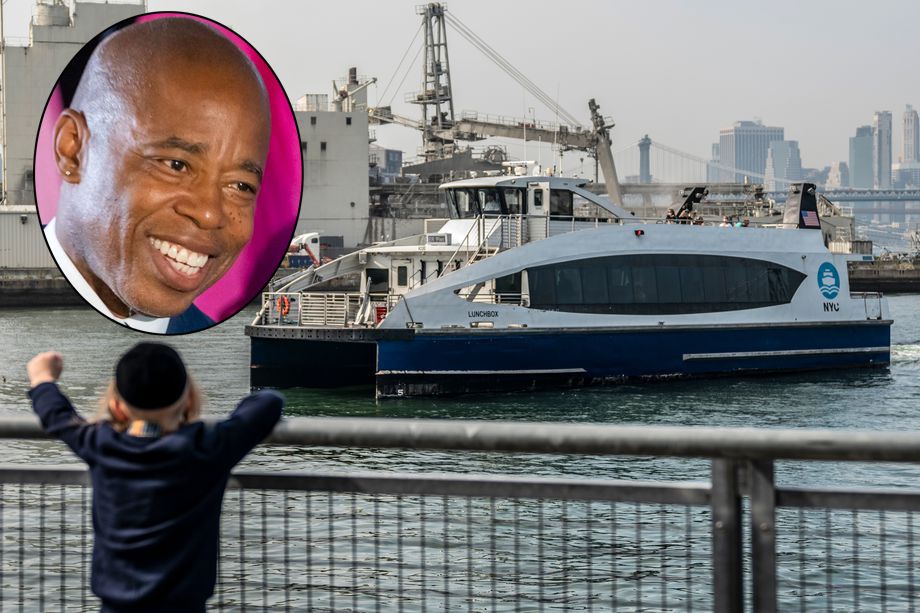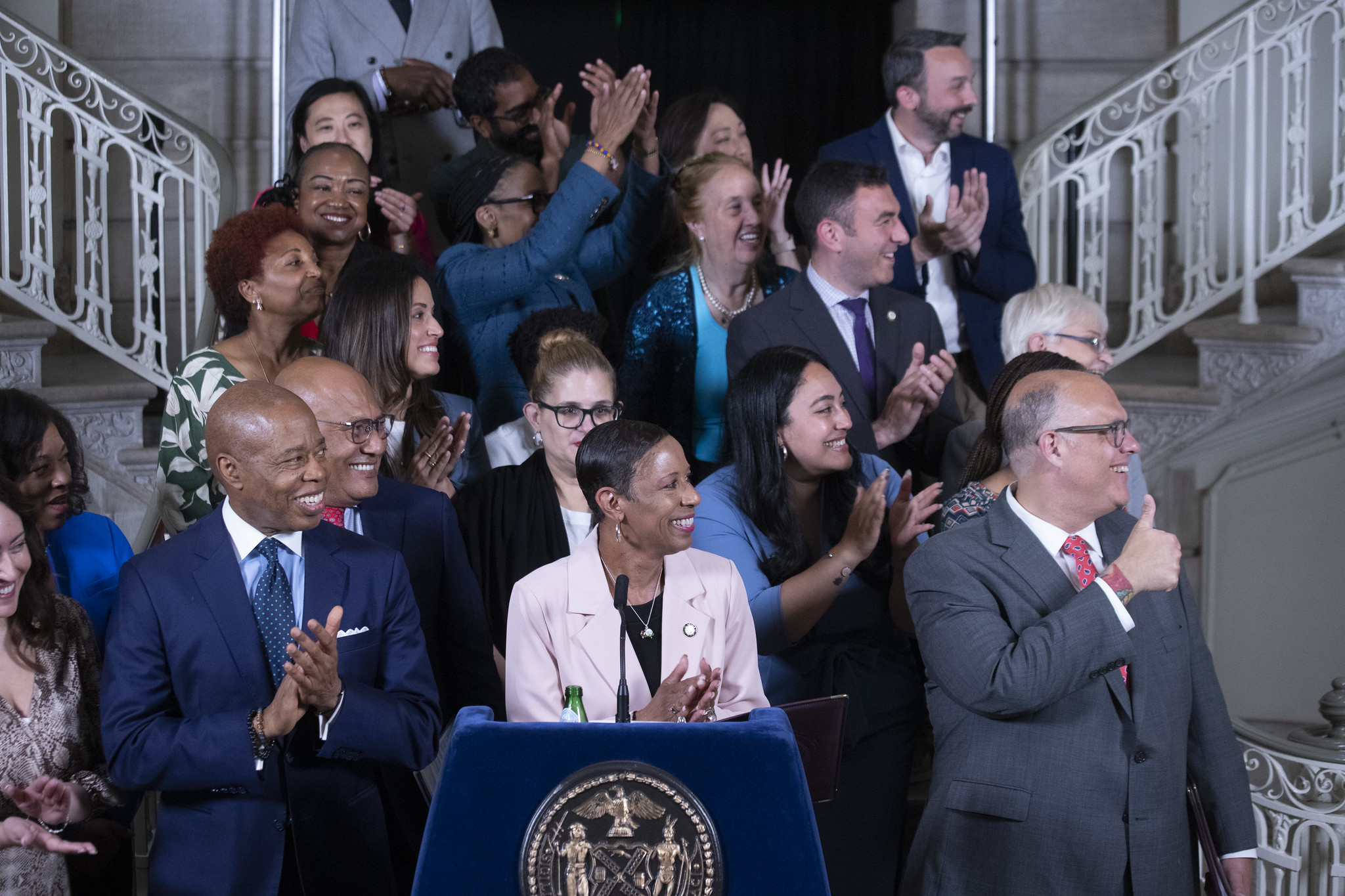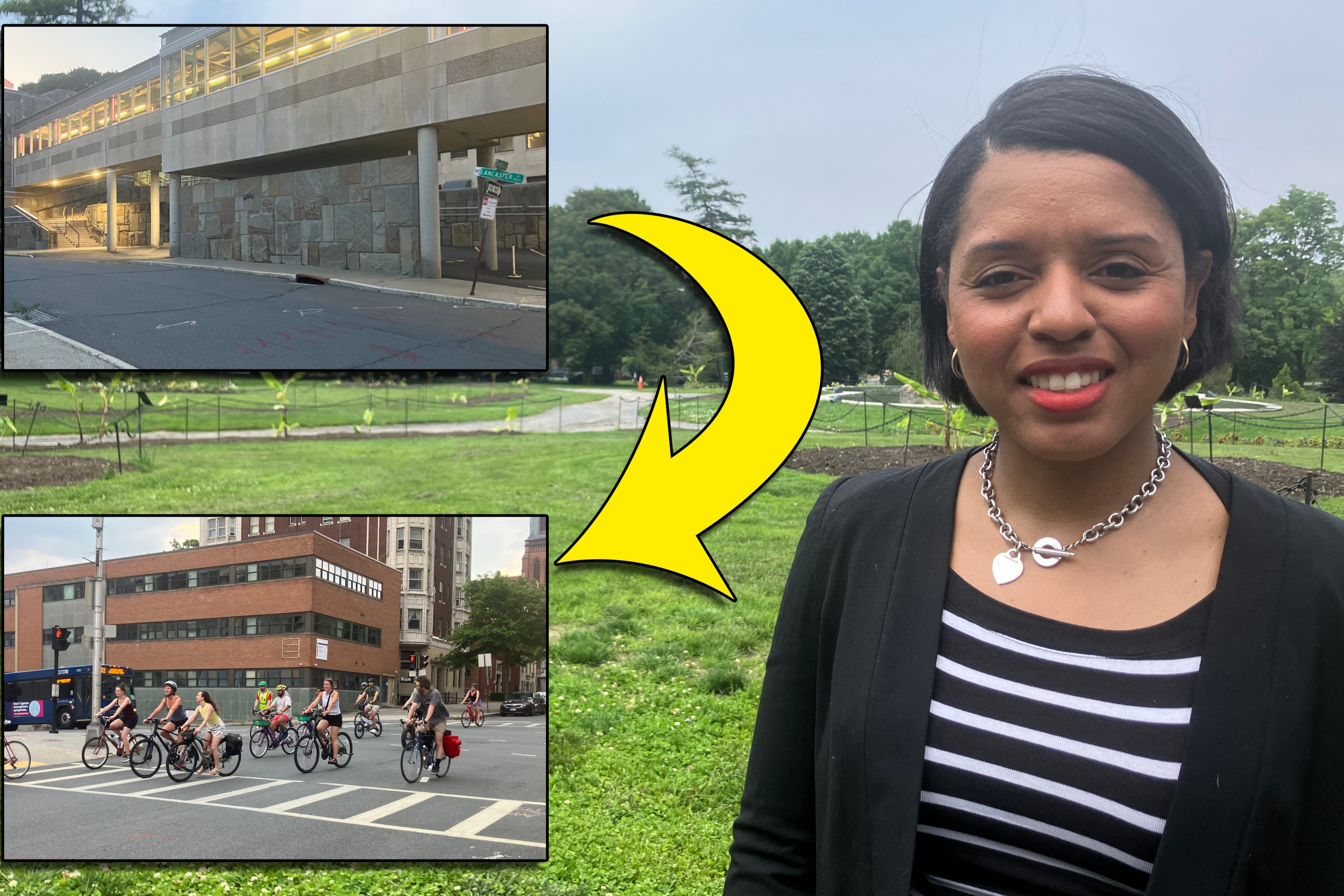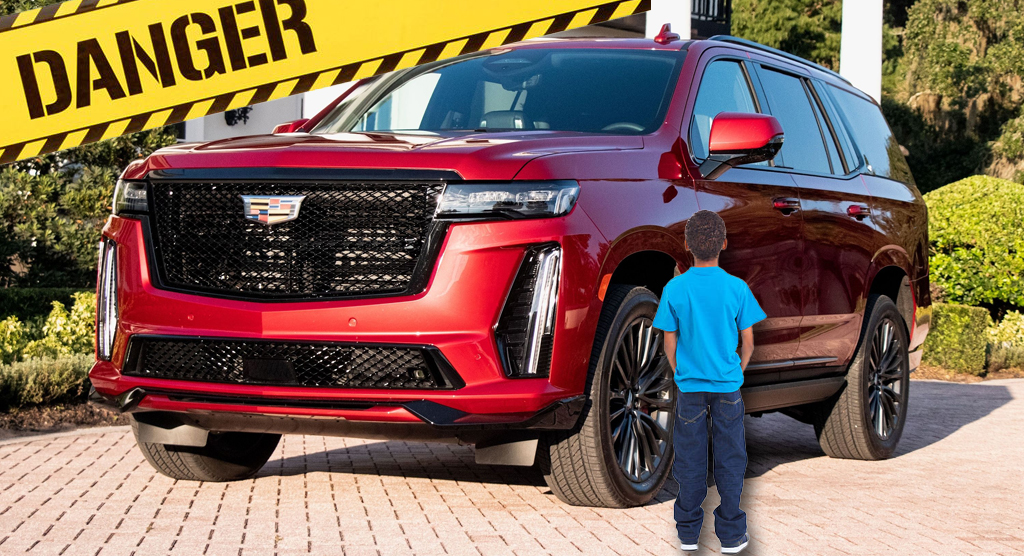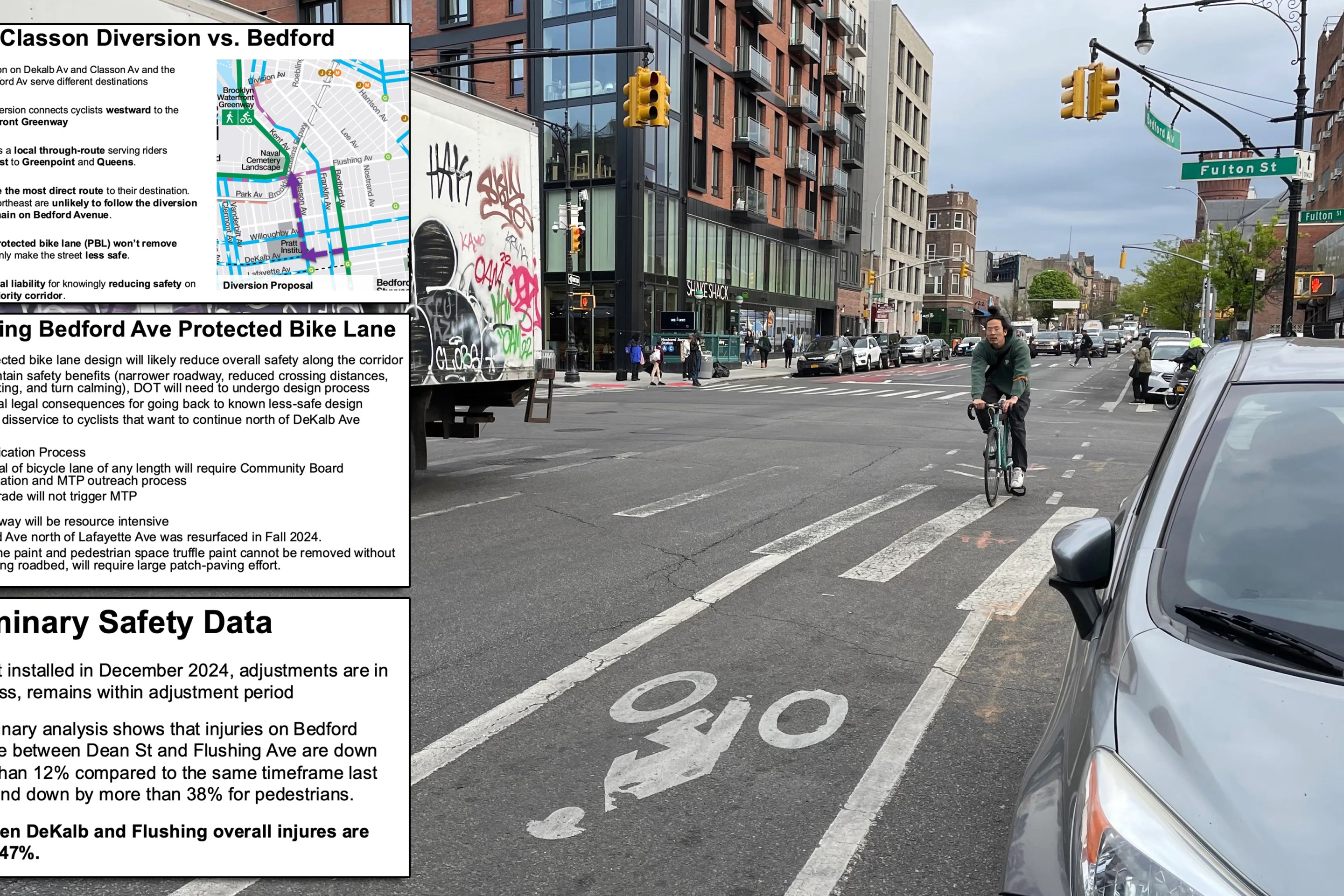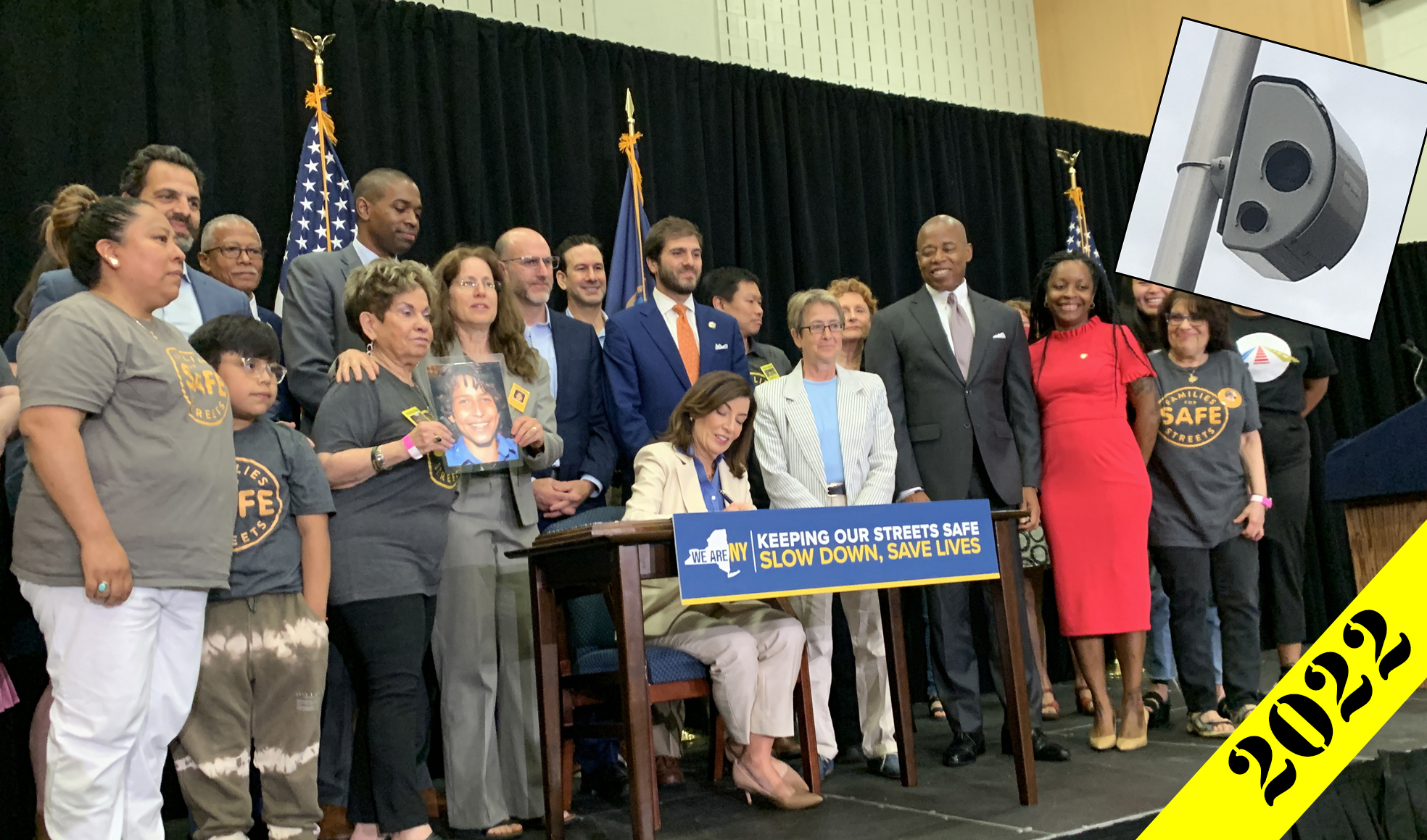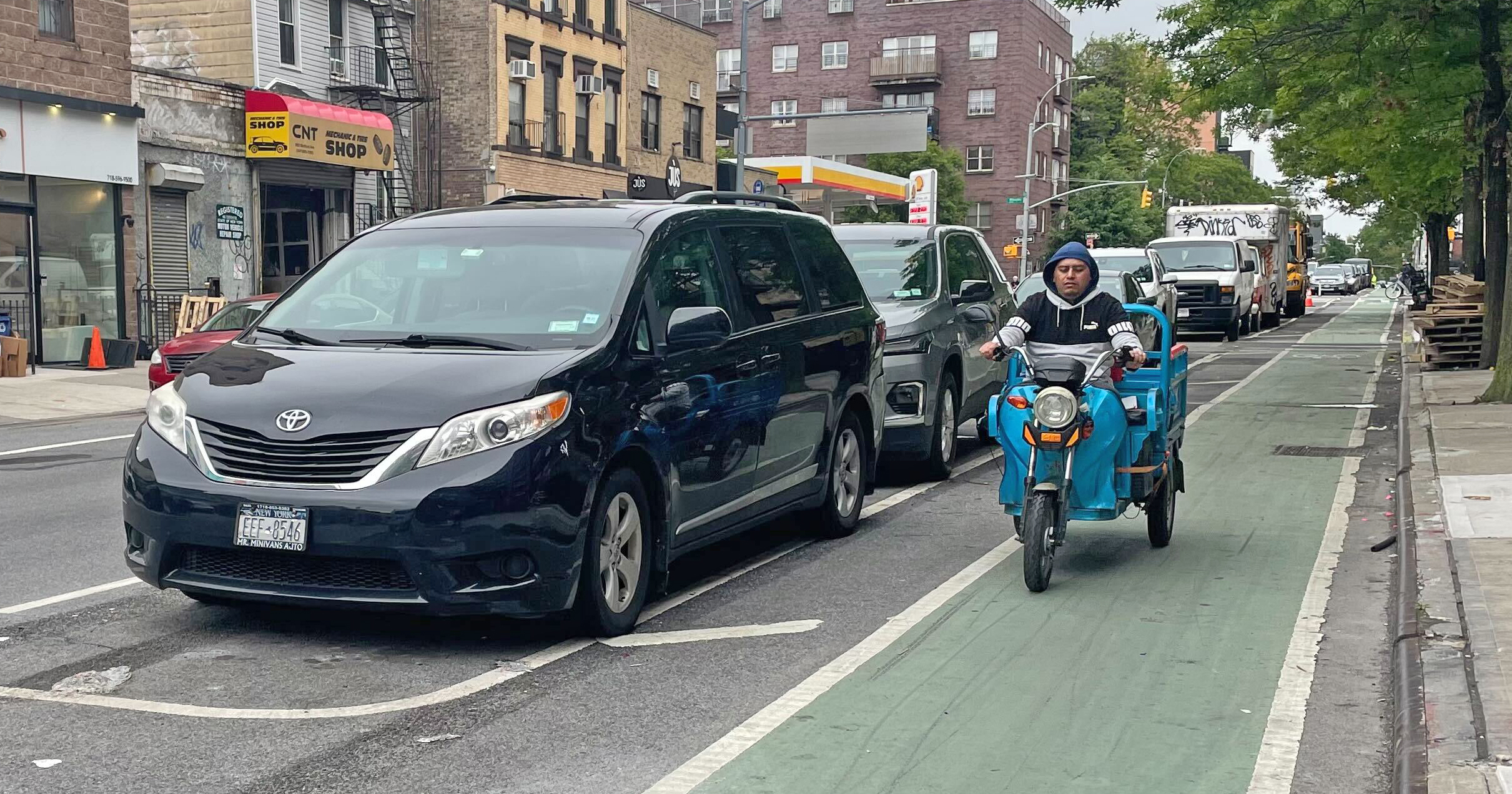A fairer ferry?
Mayor Adams raised the base fare on the NYC Ferry system by nearly 50 percent on Thursday, but in doing so, said he would shore up the service and make it more equitable with reduced fares for low-income residents. He pitched the new fares as a way to boost ridership and revenue for the system that recently came under fire for financial mismanagement and has frequently been derided as being too costly to taxpayers given how few people (mostly rich ones) use it.
"We're specifically targeting ways to allow people to use the system more," Adams said at the Astoria ferry dock (which he arrived to and departed from via a ferry). "More and more New Yorkers are using New York City ferry, but too many are not aware of the great benefits from it. They think is out of reach and they think that it's not something that they can utilize. ... For those who say it's just for the affluent New York that's just wrong, it is for every New Yorker."
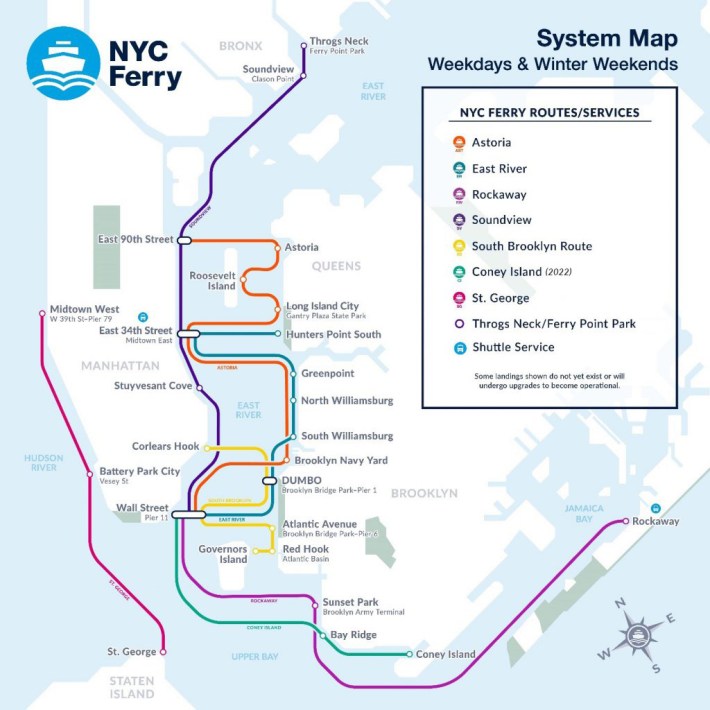
The ferry, which has some of the highest transportation subsidies in the city, is now the largest passenger fleet ferry in the country and on pace to have 6,000,000 riders in 2022. For context: the city's buses moved more people than that between July 8 and July 13 (that's six days).
For Phase I of what the mayor is calling "NYC Ferry Forward," Adams announced that the price of a single-ride ticket would rise from $2.75 to $4 to better align the price of a ferry ride with the true cost of providing it. The mayor also announced a series of moves to both boost ridership and equity:
- To make up for the new higher base fare regular riders will be able to buy 10-packs of tickets for $27.50, a move aimed at commuters and other frequent riders.
- And the $1 surcharge to bring bikes on the boats has been eliminated.
- There will also be a $1.35 fare for low-income New Yorkers, senior and people with disabilities modeled after the subway's discount Fair Fares program.
Additionally, NYC Ferry is going to send mailers to 60 NYCHA buildings within one-mile of a ferry dock to inform residents about the discount program, and will offer those residents two free ferry tickets in order to raise awareness about the existence of the ferry. The new fare structures will go into effect on Sept. 12 — after the summer peak period.
Sounds like naming rights for the boats may be on the table to make more money for the city, according to Richards
— Kevin Duggan (@kduggan16) July 14, 2022
But before the summer melts away, the city will create the Rockaway Rocket, a direct ferry on weekends and holidays directly from Pier 11 in Manhattan to Rockaway, starting on July 23. Reserved tickets, which will reduce the likelihood of getting stranded on line at the Beach 108th Street dock, will be $8 each way.
A City Hall press release said that the new structure could raise as much as $2 million in additional revenue for the city, which in turn would reduce the high seas piracy that is the current subsidy for the system.
The new fares still won't come close to matching the true cost to taxpayers of each ride, depending on whether you take the the word of the Economic Development Corporation, which funds the ferry and said the subsidy is $8.59, or of Comptroller Brad Lander, whose recent audit claimed the subsidy is $12.88 per ride.
It's also unknown if the new reduced fare and the outreach efforts to NYCHA residents will be able to bend the ridership demographics of the current ridership. Surveys have shown that the average ferry rider makes over $100,000 per year, which dwarfs the yearly income of the average subway rider ($40,000) or bus rider ($28,455).
Lander praised the new higher base fare, while asking the EDC to go further with its tiered structure charging infrequent riders and daytrippers something closer to the actual cost of a ride.
"Tiered pricing will allow the city to better target scarce subsidies to areas of greatest need and benefit," the comptroller said. "It makes sense to charge regular commuters less than one-time riders and utilize the Fair Fares approach to reduce costs for low-income New Yorkers. We urge EDC to also consider a more thorough tiered structure; for tourists and weekenders who take one-time trips from Manhattan to the Rockaways, it likely makes sense to charge closer to the actual cost of the ride."
The ferry hawks at the Citizens Budget Commission, the organization that first took note of the ferry's high subsidy, also offered praise for tiered pricing, but added that it would keep watching from the shore.
"Ultimately, success of this plan should be evaluated in large part by whether and how much the subsidy is reduced, with evidence that the remaining subsidy above what is provided to other transit users is well targeted to those in the greatest need of transit options and affordability," said CBC President Andrew Rein. "Reducing this subsidy is important, especially if there are other ways those funds could be put to better use helping New Yorkers in need and growing the economy."
The organization also suggested a series of steps it said would provide better boat for your buck, including a fare that's closer to the $6.75 per ride on MTA express buses and even taking a good hard look at whether some ferry routes don't provide enough ridership to justify their total expense.
But the mayor, who's pitched himself as an efficiency maven, dismissed too much handwringing over the subsidy, telling reporters that you can't put a price on what a nice boat ride does for your quality of life.
"How do you put a price tag on those who are living in transportation cases and now can utilize this very system to get to the job in 10 minutes," he said. "There are transit deserts in our city that people have been denied access to employment, upward mobility, access to health care. If you don't have access to transportation, it's going to impact your overall quality of life."
The Adams administration has one problem that also bedeviled Mayor de Blasio, whose NYC Ferry built on the foundation of an earlier East River ferry created by his predecessor: namely how to achieve fare integration with the MTA. The transit agency has never showed much interest in allowing the waterborne travelers from the ferry to get a free train ride, something that EDC President Andrew Kimball noted when he called it a step somewhere over the distant hazy horizon.
"Transit integration is always the goal and that would be ideal," he said. "It is complex and requires coordination with the MTA and requires administrative costs. It's definitely something we're looking at. This is this is not the end, this is a major step forward. We're going to continue to look at various different locations in terms of stops. We're going to continue to look at our pricing and monitor the impact, we're going to continue to talk to the MTA about things like fair integration. But that's not happening today."
Also not mentioned? Pollution:
